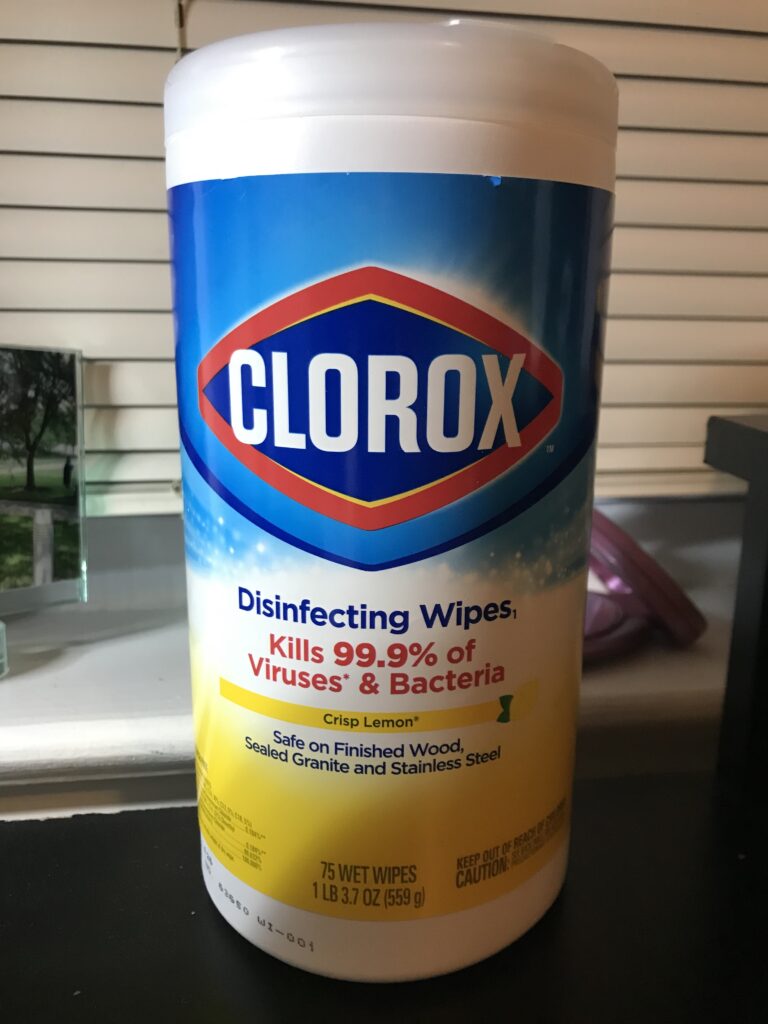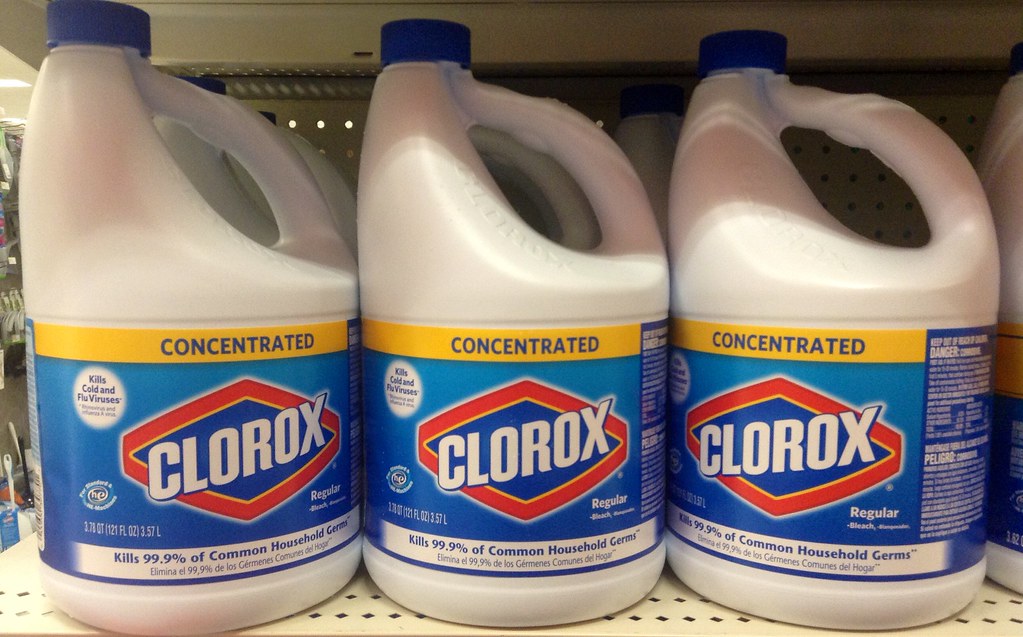Discovering termites in your home can be a startling experience. These tiny pests, capable of causing significant structural damage, often prompt homeowners to scramble for immediate solutions. Among the myriad of DIY remedies and household products touted for pest control, one question frequently arises: Does Clorox kill termites? With its reputation as a powerful disinfectant and cleaning agent, Clorox (bleach) is readily available in most households, making it a tempting choice for those seeking quick fixes. This article delves into the efficacy of Clorox against termites, aiming to provide homeowners with the information needed to make informed decisions in their battle against these wood-destroying invaders.

Does Clorox kill termites?
Overview of Termites
Termites are social insects that feed on cellulose, primarily found in wood, making homes and other structures prime targets for their destructive feeding habits. There are several types of termites, including subterranean, drywood, and damp wood termites, each with unique behaviors and preferences that influence their approach to infesting homes. Subterranean termites, for instance, create elaborate tunnel systems to access food sources, while drywood termites reside directly within the wood they consume.
The threat termites pose to structures is not to be underestimated. Capable of remaining undetected for long periods, they can cause extensive damage before homeowners are even aware of their presence. This stealthy nature, combined with their potential for widespread destruction, underscores the urgency of finding effective termite control solutions. Given the stakes, the consideration of household products like Clorox for termite control warrants a closer look at both the scientific and practical aspects of such an approach.
Does Clorox kill Termites? Clorox as a Termite Control Method
Clorox, a brand name for bleach, is renowned for its strong disinfectant properties, effectively killing bacteria and viruses on various surfaces. Its active ingredient, sodium hypochlorite, is a powerful oxidizing agent, making it a staple in household cleaning routines. Given its widespread availability and potent chemical makeup, homeowners might wonder about its potential use against termites. The idea of using Clorox to combat termite infestations stems from its ability to kill on contact, a property that could theoretically extend to termites and other pests.
How Clorox Affects Termites
The mechanism by which Clorox (bleach) affects termites is primarily through its oxidative properties. When applied directly to termites, sodium hypochlorite can disrupt their physiological functions, leading to immediate death. This effect is due to the chemical’s ability to break down the protective outer layers of the termites’ bodies, causing dehydration and lethal damage to their cells.
Research and expert insights on using bleach for pest control, including termites, are limited. However, the consensus among pest control professionals is that while Clorox can kill termites on contact, its utility as a termite control method is significantly constrained by several factors:
- Limited Reach: Clorox’s effectiveness is restricted to termites that are directly exposed to the treatment. It does not penetrate wood or reach into the termites’ nests, where the majority of the colony resides.
- No Preventative Action: Unlike specialized termite treatments that offer residual effects to deter future infestations, Clorox provides no lasting protection against termites. Its impact is immediate and short-lived, requiring direct contact to be effective.
- Potential Damage: The application of Clorox on surfaces, especially wood, can lead to discoloration and damage. Its corrosive nature may harm the very structures homeowners seek to protect from termite damage.
While Clorox can theoretically kill termites upon direct contact, its practical application as a termite control method faces significant limitations. The need for direct application, combined with the absence of a residual protective effect and the risk of property damage, suggests that Clorox is not a viable standalone solution for termite infestations. This analysis leads to the conclusion that while household products like Clorox may offer temporary fixes, they fall short of addressing the complexities of termite control and eradication comprehensively.
Pros and Cons of Using Clorox Against Termites

Pros and Cons of Using Clorox on Termites
Utilizing Clorox for termite control comes with a set of advantages and disadvantages that homeowners should consider before proceeding with this method.
Pros
- Immediate Results: Clorox can kill termites on contact, offering quick relief in situations where termites are visibly present and accessible.
- Availability: As a common household cleaning product, Clorox is readily available, making it a convenient option for immediate use.
- Cost-Effective: Using Clorox as a termite treatment can be cost-effective compared to purchasing specialized pest control products or hiring professionals for small, localized infestations.
Cons
- Surface-Level Effectiveness: Clorox’s impact is limited to termites that are directly sprayed, making it ineffective against colonies hidden within structures or underground.
- No Long-Term Protection: It offers no residual effect to deter future infestations, meaning termites can return once the immediate threat is neutralized.
- Safety Risks: Handling Clorox requires caution due to its corrosive nature and potential health hazards, including respiratory irritation and skin burns.
- Risk of Property Damage: Clorox can damage wood and other materials, potentially exacerbating the very issues homeowners aim to resolve.
Does Clorox Kill Termites? Application Method
If homeowners choose to use Clorox as a temporary measure against termites, following safety guidelines is crucial to minimize risks and maximize effectiveness:
- Dilute Appropriately: For termite treatment, diluting Clorox with water can reduce its corrosiveness. A suggested ratio is one part Clorox to ten parts water, though effectiveness may vary.
- Wear Protective Gear: Always wear gloves, goggles, and a mask to protect against splashes and fumes when handling Clorox.
- Apply Directly to Infested Areas: Use a spray bottle to apply the diluted Clorox solution directly onto visible termites or infested wood surfaces. Avoid oversaturating, as excessive moisture can further damage wood.
- Ensure Ventilation: Work in well-ventilated areas to avoid inhaling fumes, which can be harmful to your respiratory system.
- Avoid Use on Sensitive Surfaces: Test the solution on a small, inconspicuous area first to check for adverse reactions, especially on colored or treated wood.
While these steps can help in applying Clorox safely, it’s essential to recognize this method’s limitations. For comprehensive termite eradication and prevention, professional pest control services are recommended. These services can provide targeted treatments that reach the heart of the infestation, offer lasting protection, and avoid the potential pitfalls of DIY methods like using Clorox.
Professional Termite Control vs. DIY Methods
When it comes to termite control, the debate between professional services and DIY methods, such as using Clorox, often centers on effectiveness, safety, and cost. Professional termite control offers comprehensive solutions that address not only the visible signs of infestation but also target the colony’s source, ensuring long-term eradication and prevention.
Advantages of Professional Termite Control:
- Comprehensive Assessment: Professionals conduct thorough inspections to identify all infestation sites, including those hidden from view.
- Advanced Treatment Options: They have access to a variety of treatment methods, including termiticides, bait systems, and physical barriers, tailored to specific termite species and infestation extents.
- Long-term Prevention: Professional treatments often include follow-up inspections and treatments, providing ongoing protection against future infestations.
- Safety and Efficiency: Experts are trained to apply treatments safely, minimizing risks to humans, pets, and the environment.
Conversely, DIY methods like applying Clorox may seem appealing due to their immediate availability and perceived cost savings. However, the limitations—such as the inability to reach the heart of the infestation, the lack of residual protection, and potential safety hazards—significantly reduce their effectiveness as a long-term solution.
Preventative Measures to Avoid Termite Infestation
Preventing termite infestations is far more cost-effective and less stressful than dealing with an active infestation. Here are key preventative measures homeowners can implement:
- Eliminate Moisture: Termites are attracted to moisture. Repair leaks, ensure proper drainage around the foundation, and use dehumidifiers in damp areas of the home.
- Remove Food Sources: Keep firewood, mulch, and other cellulose materials away from the home’s foundation. Use treated wood for any ground contact.
- Seal Entry Points: Regularly inspect the home for cracks in the foundation, walls, and around windows and doors, sealing any openings to prevent termite entry.
- Regular Inspections: Annual inspections by a professional can catch early signs of termite activity, preventing significant damage.
Adopting a proactive approach to termite prevention and opting for professional termite control when necessary can save homeowners significant time, money, and stress in the long run. While DIY methods like using Clorox can offer a temporary fix, they cannot replace the comprehensive protection and peace of mind provided by professional termite management services.
FAQs on Does Clorox Kill Termites
Q: Will Clorox eliminate a termite colony?
A: Clorox can kill termites on direct contact due to its oxidizing properties, but it is unlikely to eliminate an entire colony. Termite colonies often reside deep within structures or underground, areas Clorox cannot reach.
Q: Is it safe to spray Clorox on infested wood?
A: While Clorox can kill termites on contact, it may also damage the wood and other materials. It’s essential to use it cautiously and consider the potential for discoloration and weakening of the wood.
Q: How often should I apply Clorox for it to be effective against termites?
A: Repeated application of Clorox is not a practical or effective long-term termite control strategy. It offers no residual protection and can pose risks to the property and inhabitants.
Q: Can Clorox prevent future termite infestations?
A: No, Clorox does not provide a residual effect that would deter future termite infestations. Preventative measures and professional termite control solutions are more effective for long-term protection.
Conclusion: Does Clorox Kill Termites?
The question does Clorox kill termites brings to light the broader challenges of termite control and the importance of effective, sustainable solutions. While Clorox, a common household bleach, can kill termites on contact, its limitations underscore the necessity for comprehensive approaches to termite eradication and prevention.
Termite control extends beyond immediate remedies to encompass a strategic blend of prevention, early detection, and professional intervention. Homeowners are encouraged to adopt preventative measures, such as maintaining a dry environment, sealing potential entry points, and removing food sources, to reduce the risk of termite infestation.
For active infestations or comprehensive long-term protection, professional termite control services offer the expertise, tools, and methods designed to effectively target and eliminate termite colonies, preventing future infestations. These services not only address the root of the termite problem but also provide peace of mind through guarantees and ongoing protection plans.
In conclusion, while DIY methods like using Clorox may offer temporary solutions, informed homeowners recognize the value of professional termite control in safeguarding their homes. Making informed decisions about termite prevention and control ensures the structural integrity of your property and the well-being of its inhabitants, preserving your home as a safe and cherished space for years to come.
